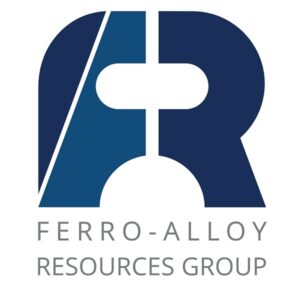Vanadium is fast becoming a strategic resource in the global shift toward renewable energy and sustainable infrastructure. Its primary use in strengthening steel is well-established, but its role in vanadium redox flow batteries (VRFBs) for energy storage is transforming market dynamics. Ferro-Alloy Resources, led by CEO Nicholas Bridgen, is advancing one of the world’s largest and lowest-cost vanadium projects while pioneering a breakthrough carbon black substitute—an innovation that could significantly disrupt a multi-billion-dollar market.
Vanadium’s market remains small yet volatile, with prices swinging from over $30 per pound to as low as $5 per pound. The lack of large stockpiles contributes to these fluctuations, but long-term fundamentals remain strong. Steel production continues to dominate demand, with 85-90% of global consumption linked to high-strength steel applications, particularly in China. As infrastructure projects expand and sustainability regulations tighten, vanadium’s importance in reducing CO₂ emissions through stronger, lighter steel is set to grow.
Meanwhile, VRFB technology is gaining momentum as a key enabler of grid-scale energy storage. With China alone projected to require 100,000 tons of vanadium for planned battery projects, the metal’s role in the energy transition is undeniable. Ferro-Alloy Resources is positioned to benefit from both these trends, offering a low-cost supply solution that enhances the security of vanadium sourcing outside China and Russia.
Beyond vanadium, Ferro-Alloy is spearheading a major innovation in the carbon black market, an industry worth $20-30 billion annually. Conventional carbon black, primarily used in tire production, is produced through highly carbon-intensive processes that release around two tons of CO₂ per ton of product. Ferro-Alloy’s alternative—an ultra-low-cost, low-emission carbon black substitute (CBS) derived from its vanadium ore—has the potential to disrupt the industry. The company’s CBS matches the reinforcing properties of traditional carbon black while cutting production costs by half and significantly reducing environmental impact.
With commercial-scale testing underway, Ferro-Alloy is targeting entry into the agricultural and industrial tire sectors, where performance thresholds are less stringent. Initial production of 220,000 tons annually could generate $110 million in revenue, with strong potential for expansion. The market’s response has been overwhelmingly positive, with manufacturers keen to secure a cost-effective, sustainable alternative.
For investors, Ferro-Alloy presents a unique dual opportunity: a low-cost vanadium producer poised to capitalise on rising demand for steel and energy storage and a disruptor in the carbon black industry. The company’s diversification strategy helps mitigate vanadium price volatility, while its sustainability-driven approach aligns with global decarbonisation goals. A feasibility study in the near term will further clarify the project’s economic potential, solidifying its position as a strategic investment in the critical materials space.


